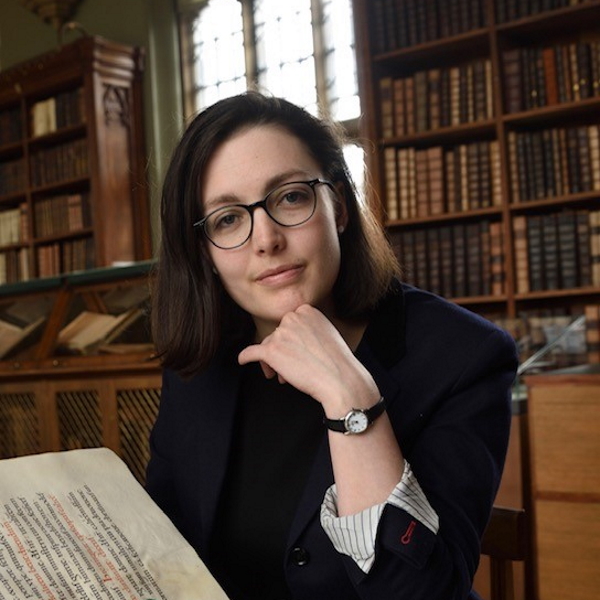Isabel Lauterjung is amused by some flowery language and vicious accusations as she catalogues the Royal Society Miscellaneous Correspondence series.
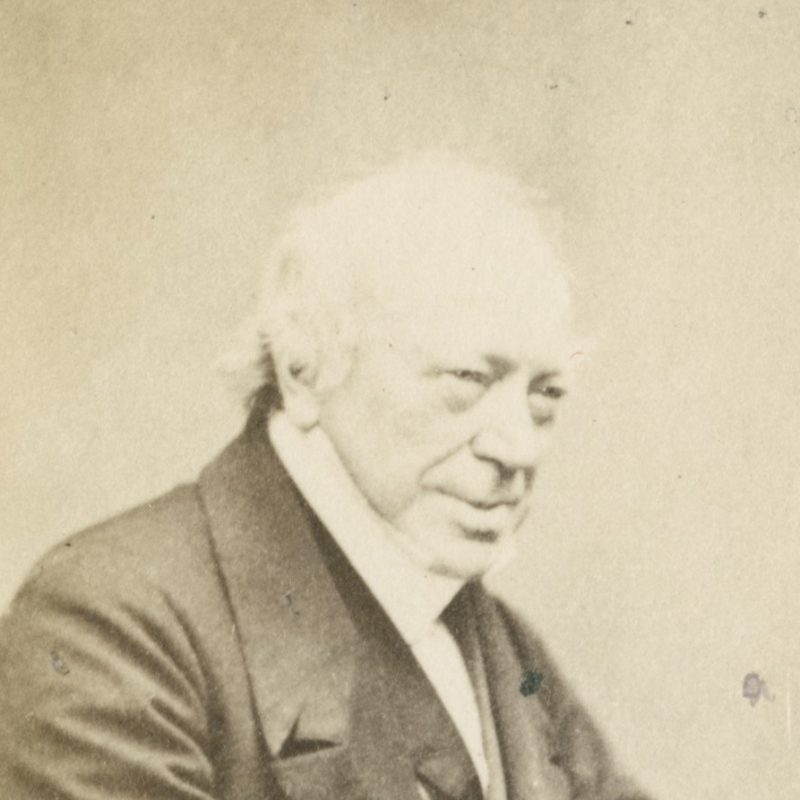
I’ve been cataloguing my way through the Royal Society Miscellaneous Correspondence series, and I must confess that it brings a smile to my face every time I read something resembling a petty Twitter thread, complete with flowery language and vicious accusations. Some things really don’t change…
It’s common to find a series of letters calling for the expulsion of existing Fellows or the rejection of certain candidates. One of the earlier examples I’ve found relates to alleged financial fraud: solicitor William Tooke FRS alerted the Royal Society to a ‘circumstance of discreditable notoriety’ connected to one of the Society’s other Fellows, Charles Terry FRS. In reference to an article in The Times, dated 27 November 1838, Tooke drew attention to a ‘gross breach of trust, if not fraud’ committed by Terry, who had reportedly re-issued shares sent to him simply for registration purposes, leading to great financial loss for all parties involved.
Tooke remained (comparatively) restrained, merely suggesting that before the Society invoked the Statutes’ clauses on expulsion of Fellows associated with acts damaging to the reputation of the Society, the Fellows who initially proposed Terry for election should be called in to provide testimonies as to his behaviour and character. While Tooke’s letter was read at a Council meeting on 22 December 1838, there is, however, no indication that this request was taken any further or that Terry resigned from the Fellowship, as he continued to appear on the Society’s List of Fellows in subsequent years.
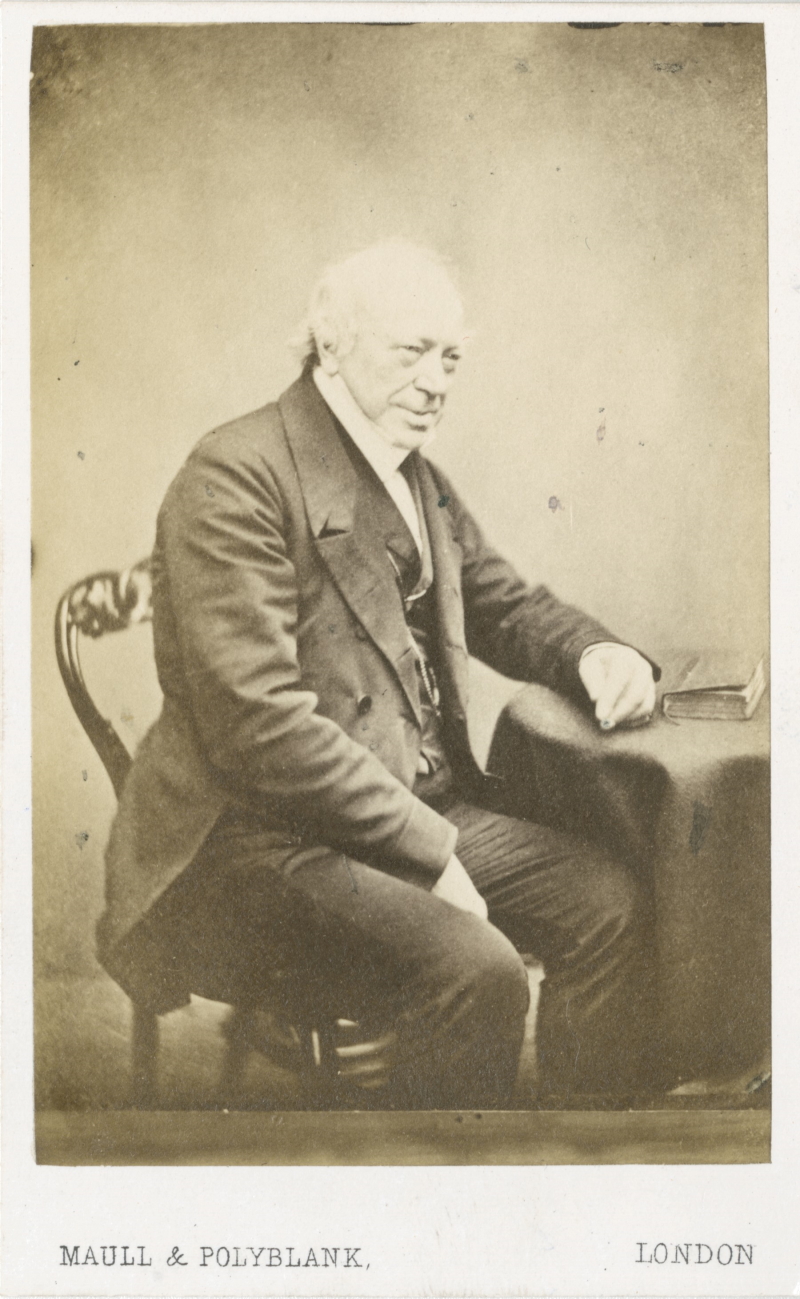 William Tooke FRS (RS.18111)
William Tooke FRS (RS.18111)
The collection also holds a more famous allegation in its midst. Sir Travers Twiss FRS was a generally well-respected jurist interested in law, politics, and economy. He was appointed to the office of Admiralty Advocate-General in 1862, worked on ‘prize cases’ from the Crimean War, and in August 1862 married Marie Pharialdé Rosalind Van Lynseele in Dresden. He proceeded to present her at the Court of St James’s the following year and then again in 1869.
However, by 1872 the couple was involved in a malicious libel case against fellow solicitor Alexander Chaffers, who had been actively circulating rumours or accusations that Lady Twiss had an ‘immoral’ background and that Sir Travers had deceived the Lord Chamberlain and gravely insulted Her Majesty Queen Victoria by presenting his wife at court. In the end, Twiss resigned from all public offices - though not his Royal Society Fellowship - his wife returned to the continent, and Chaffers ended up being instrumental in the conception of the Vexatious Actions Act 1896: after filing numerous lawsuits against high-standing members of Victorian society and failing to pay when costs were awarded against him, he was the first person to be declared ‘habitually vexatious’!
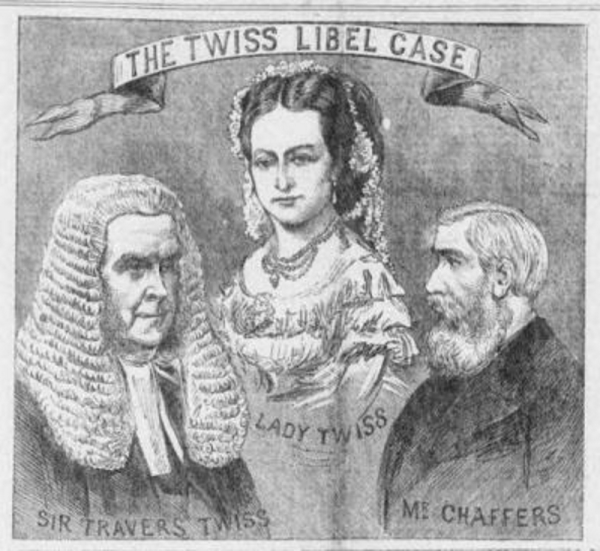
The figures in the Twiss libel case: 'Illustrated Police News' (1872) via Wikimedia Commons
While use of stronger tone and language is comparatively rare in the Miscellaneous Correspondence, there was one instance which had me stifling a laugh in our (very quiet) Library reading room: the start of a lengthy 1853 letter from Francis Higginson to Royal Society Secretary Samuel Hunter Christie FRS:
‘I have received your laboured hypocritical and foolish letter, dated the 22nd Instant. And find you must indeed have miscalculated the extent of my credulity, from measuring it, by the standard of your own folly, when you conceived it possible to stultify my common sense, and physical experience, merely by the use of hackneyed, vague, ambiguous, would be, scientific phrases.’
The letter relates to Higginson’s observation of a ‘falling thunderbolt’ or ‘meteorolite’ at Dover, which he had submitted to the Royal Society. The correspondence spans multiple letters, which reveal that Higginson had held a grudge since 1835, when his research on magnetic attraction was rejected for presentation to the Society. He went on to publish an indignant 76-page summary of this exchange, which does make for an entertaining read!
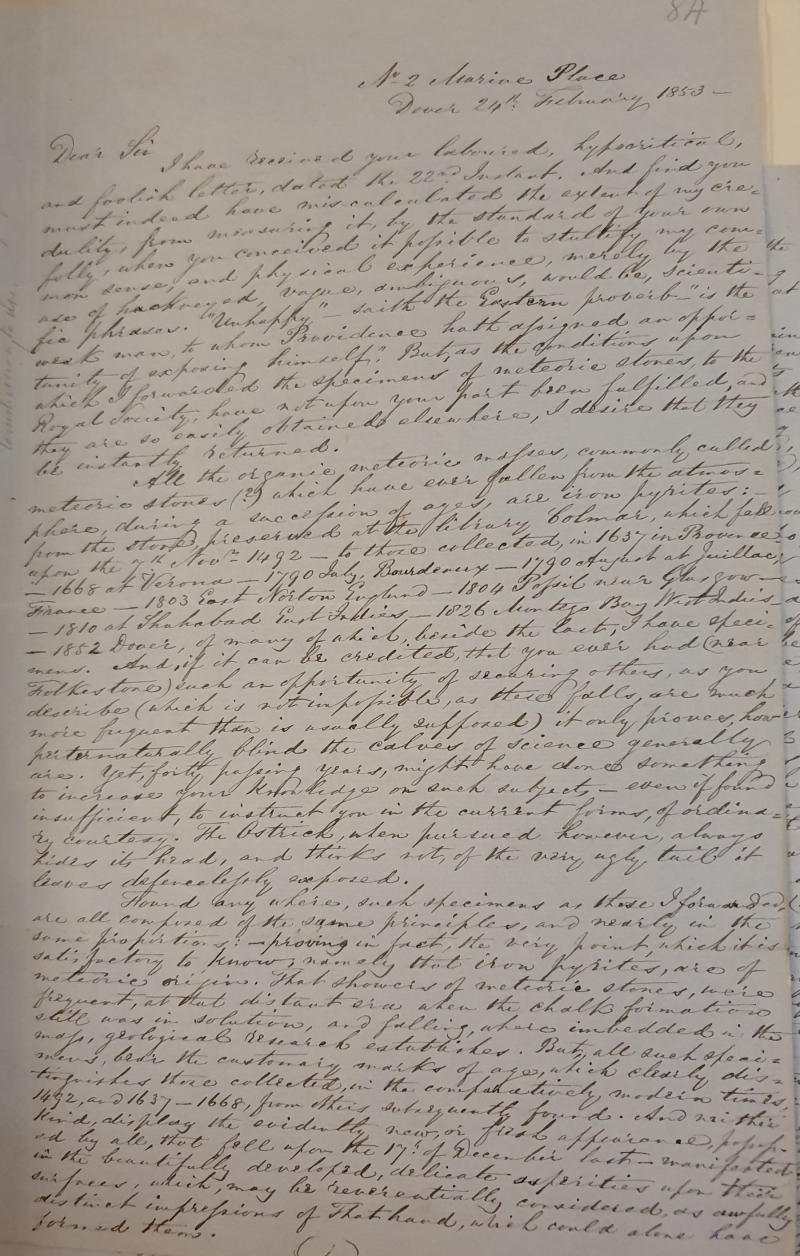 (Only) the first page of Higginson's letter to Samuel Hunter Christie FRS
(Only) the first page of Higginson's letter to Samuel Hunter Christie FRS
It feels a bit cheeky picking a favourite from the five thousand letters I’ve catalogued, but I must admit the thrill lies in the mystery of it all. No sender, no address and only an approximate date inferred later on - we have a winner! An anonymous writer attached a newspaper cutting from a self-proclaimed ‘Old Member of the British Medical Association’, who questioned the election of Home Secretary Richard Assheton Cross FRS to the Society. While the newspaper cutting was fairly moderate in its criticism, the writer of the rest of our letter seems positively outraged:
‘The force of Bathos can no farther go!! Future scientific men must abjure the initials F.R.S. with contempt, interpreting them in accordance with popular rendering - i.e. Fellow Remarkably Stupid. They manage these things better in France, at the Academy, where Toadyism and Flunkeyism are unknown. !!!’
And to top it all off, he signs with a damning Συκοφάντων καταφρονητής, which translates to ‘slanderous scorner’.
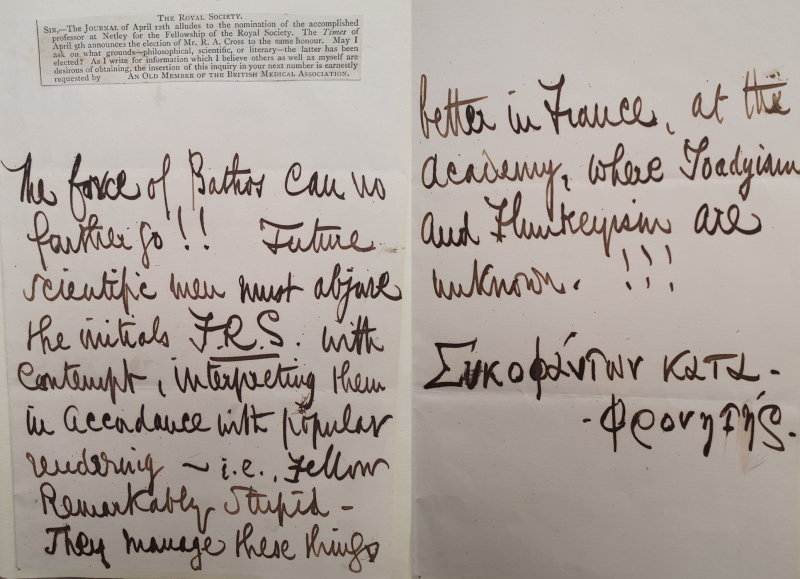 A vehement letter from an unknown sender (MC/11/396)
A vehement letter from an unknown sender (MC/11/396)
When it comes to signoffs, that’s a tough act to follow, but ultimately these examples showcase the little gems tucked away in the midst of administrative letters or correspondence on scientific progress and publications. The Miscellaneous Correspondence is far from being fully catalogued, and I expect to find at least a few more of these to add to my ‘Best of MC’ list.





